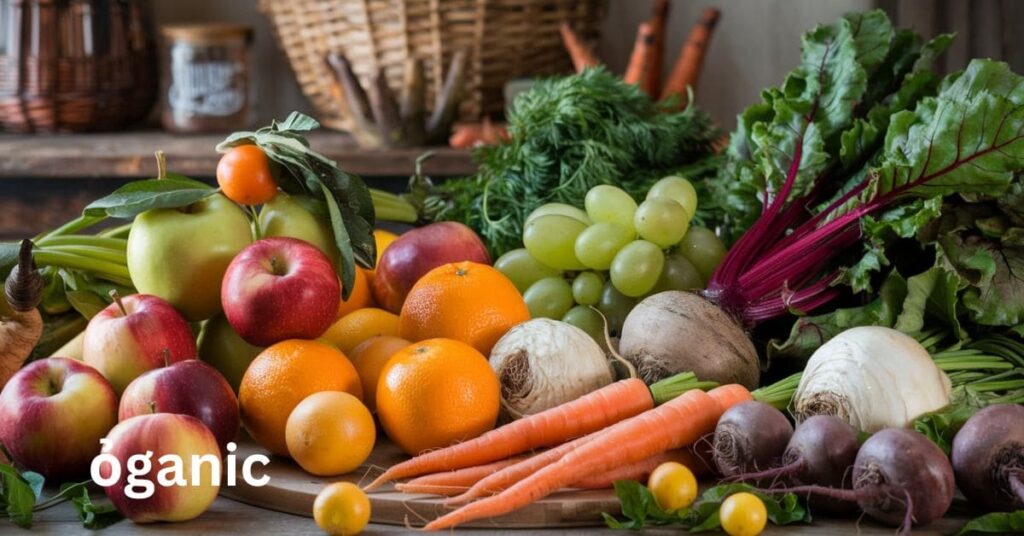Understanding ỏganic: A Comprehensive Guide to Organic Products and Practices

In today’s world, the term “ỏganic” is everywhere. From grocery store shelves to restaurant menus, it seems that organic products are becoming increasingly popular. But what does “ỏganic” really mean, and why is it such a significant trend in our society? This article delves deep into the concept of ỏganic, exploring its implications, benefits, and the reasons behind its growing appeal. We’ll provide insights that go beyond the basics, offering a thorough understanding of organic practices and their impact on our health and environment.
What Does “ỏganic” Mean?
At its core, “ỏganic” refers to products and practices that are free from synthetic chemicals and genetically modified organisms (GMOs). Organic farming is based on principles that emphasize ecological balance, biodiversity, and sustainability. Unlike conventional farming methods, which often rely on artificial fertilizers, pesticides, and herbicides, ỏganic practices seek to work in harmony with nature.
The Essence of Organic Farming
Organic farming is a holistic approach to agriculture that aims to maintain the health of the soil, the ecosystem, and the people who consume its products. The primary goals of organic farming include:
- Soil Health: Organic farming practices focus on enhancing soil fertility through natural means. This includes the use of compost, green manure, and crop rotations to improve soil structure and nutrient content.
- Biodiversity: Organic farms typically support a diverse range of plants, animals, and microorganisms. This biodiversity helps to create a balanced ecosystem, which can naturally control pests and diseases.
- Natural Pest Management: Instead of using synthetic pesticides, organic farmers rely on natural predators, companion planting, and organic-approved treatments to manage pests.
- No GMOs: Organic farming strictly prohibits the use of genetically modified organisms. This means that organic crops are grown from non-GMO seeds and are free from genetically engineered inputs.
The Benefits of Choosing ỏganic Products
Choosing ỏganic products comes with a range of benefits, from environmental sustainability to personal health advantages. Here are some of the key benefits of opting for organic products:
Environmental Benefits
- Reduced Chemical Pollution: Organic farming minimizes the use of synthetic chemicals, which helps to reduce pollution in soil, water, and air. This is beneficial for preserving natural resources and protecting wildlife.
- Soil Health and Erosion Control: Organic practices promote soil health through methods like composting and reduced tillage. This leads to better soil structure and reduces the risk of erosion.
- Conservation of Biodiversity: By avoiding harmful chemicals and promoting diverse ecosystems, organic farming supports a wide range of plant and animal species.
Health Benefits
- Fewer Pesticides: Organic products generally have lower levels of pesticide residues compared to conventionally grown produce. This can reduce the risk of exposure to harmful chemicals.
- Higher Nutrient Content: Some studies suggest that organic fruits and vegetables may have higher levels of certain nutrients, such as antioxidants and vitamins, due to the healthier soil and farming practices.
- No GMOs: Organic products are free from genetically modified ingredients, which some consumers prefer to avoid for health reasons.
The Differences Between Organic and Conventional Farming
Understanding the differences between organic and conventional farming can help consumers make informed choices about the products they buy. Here’s a breakdown of the key differences:
Farming Practices
- Soil Management: Organic farming emphasizes natural soil fertility through composting and crop rotation, while conventional farming often relies on synthetic fertilizers to boost soil nutrients.
- Pest Control: Organic farms use natural pest control methods and biological diversity to manage pests, whereas conventional farms may use chemical pesticides and herbicides.
- Animal Welfare: Organic farming standards include higher animal welfare requirements, such as access to outdoor spaces and organic feed, compared to conventional farming practices.
Certification and Labeling
- Organic Certification: Products labeled as “organic” must meet specific standards set by certifying organizations, such as the USDA Organic program in the United States. This certification ensures that the products adhere to organic farming practices.
- Conventional Products: Conventional products do not have the same certification requirements and may contain synthetic chemicals, GMOs, or other additives.
Common Misconceptions About Organic Products
Despite their growing popularity, there are several misconceptions about organic products. Let’s address some of the most common myths:
Myth 1: Organic Products Are Always More Expensive
While it’s true that organic products can sometimes be more expensive, this is not always the case. The cost difference can be attributed to factors like smaller scale production, more labor-intensive practices, and certification fees. However, prices for organic products have been decreasing over time as demand increases and supply chains improve.
Myth 2: Organic Products Are Less Effective
Some people believe that organic products are less effective than their conventional counterparts. For instance, organic pest control methods may not always be as immediately effective as synthetic pesticides. However, organic methods focus on long-term solutions and ecosystem health, which can lead to more sustainable and resilient farming practices.
Myth 3: Organic Food Is Not as Nutritious
Research on the nutritional differences between organic and conventional food has shown mixed results. While some studies suggest that organic produce may have higher levels of certain nutrients, the overall difference in nutritional value is generally small. The choice to buy organic is often more about environmental and health considerations than significant nutritional benefits.
How to Identify Genuine ỏganic Products
To ensure that you are purchasing genuine organic products, look for the following indicators:
Organic Labels
- USDA Organic Seal: In the United States, the USDA Organic seal indicates that a product has been certified organic according to USDA standards. This seal ensures that the product meets strict organic farming practices.
- Certified Organic: Products labeled as “Certified Organic” should also include the name of the certifying organization, which verifies the product’s organic status.
Store and Farm Certification
- Local Farmers’ Markets: Many local farmers’ markets offer organic products. Look for vendors who can provide information about their farming practices and certifications.
- Online Retailers: Reputable online retailers often provide detailed information about their organic products, including certifications and sourcing practices.
The Future of Organic Farming and Products
As awareness of environmental and health issues continues to grow, the demand for organic products is likely to increase. The future of organic farming may include:
- Technological Advancements: Innovations in organic farming techniques, such as precision agriculture and sustainable pest management, could enhance the efficiency and effectiveness of organic practices.
- Expansion of Organic Certification: As more farmers and producers adopt organic methods, the scope of organic certification may expand, making it easier for consumers to find organic products.
- Increased Accessibility: Efforts to improve supply chains and reduce costs could make organic products more accessible to a broader range of consumers.
Related FAQs
1. What is the difference between “organic” and “natural”? Organic refers to products grown and processed according to specific organic standards, which prohibit synthetic chemicals and GMOs. Natural, on the other hand, does not have a standardized definition and can include a wide range of products, some of which may still contain synthetic ingredients.
2. Are organic products always healthier than conventional products? Organic products are often considered healthier due to lower pesticide residues and the absence of GMOs. However, the overall nutritional differences between organic and conventional products are generally minimal. The health benefits of organic products may also depend on individual dietary choices and preferences.
3. Can I grow my own organic vegetables at home? Yes, you can grow your own organic vegetables at home by using organic seeds, avoiding synthetic fertilizers and pesticides, and adopting organic gardening practices. Many resources and guides are available to help you start an organic garden.
4. How can I find affordable organic products? To find affordable organic products, consider buying in bulk, shopping at farmers’ markets, and looking for sales or discounts at grocery stores. Additionally, some online retailers offer competitive prices on organic products.
5. Is organic farming better for the environment? Organic farming is generally considered better for the environment due to its emphasis on soil health, biodiversity, and reduced chemical pollution. Organic practices support a more sustainable and resilient ecosystem, which can benefit both the environment and human health.
By understanding the principles and benefits of ỏganic products, you can make informed choices that align with your values and contribute to a healthier and more sustainable future. Whether you’re a long-time advocate of organic practices or just beginning to explore the world of ỏganic, this comprehensive guide provides the insights you need to navigate this growing trend.








